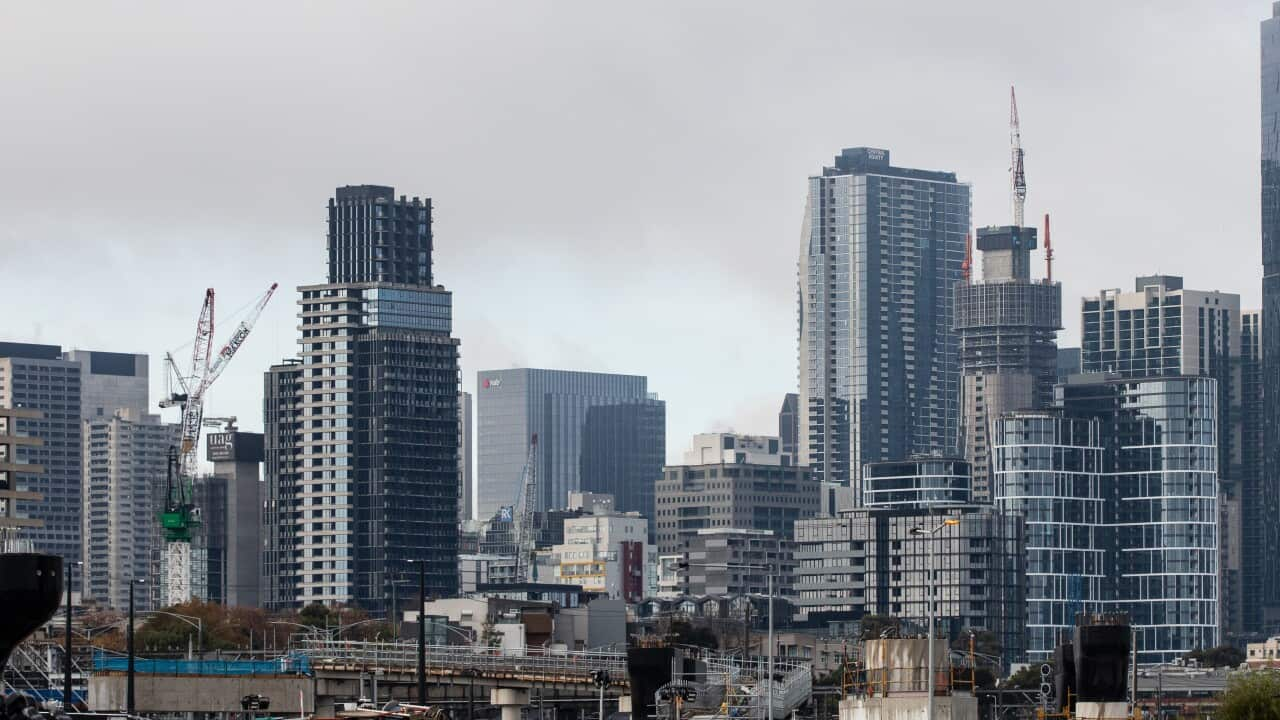Key Points
- The Reserve Bank's monetary policy and make-up of its board are to be examined as part of an independent review.
- Federal Treasurer Jim Chalmers said the terms of reference for the undertaking have been finalised.
The Reserve Bank, subject to a major review announced by federal Treasurer Jim Chalmers, is the guardian of controlling inflation in Australia.
Economist Chris Richardson said this matters because the decisions it makes impact your hip pocket.
"The Reserve Bank matters more to Australians than it’s ever done because we’ve borrowed more than ever," he told SBS News.
"The decisions have a bigger impact on the finances of families than it’s ever done."
The central bank has levers to control inflation by altering the cash rate, but these decisions have their own knock-on consequences.
More interest rate rises on the horizon
The Reserve Bank’s aim is to keep inflation between 2 and 3 per cent to avoid costs in the economy from rising too high or too low.
It has now reached 5.1 per cent with warnings it could reach as high as 7 per cent by the end of the year.
Mr Richardson said the central bank is "hiking rates because inflation is getting away from it".
"It’s true all around the world - basically reserve banks are raising rates to bring inflation down,” he said.
“That also means that there are more rate rises coming from the Reserve Bank and happening pretty fast from here.”
Supply chain pressures caused by global events like the war in Ukraine contribute to the surging costs of living.
Interest rates rising at fastest rate for decades
The Reserve Bank uses lower interest rates to stimulate spending and higher rates have the opposite effect.
But the higher the interest rate rises, the more money a person pays on top of the amount they have already borrowed, like the mortgage on a home.
The central bank lowered the cash rate to a record low of 0.1 per cent during the early stages of the COVID-19 pandemic, but has recently rapidly moved the rate back up in response to inflation.

The official cash rate has risen to 1.35 per cent in what is a steady hike driven by global and domestic pressures that has led to high inflation levels. Source: SBS News
“That is flowing through to your hip pockets not just as a borrower because if you’ve got money in the bank you are starting finally to see deposit rates rise as well.”
The cash rate has reached 1.35 per cent, meaning homeowners are feeling the pinch as cost of living pressures rise.
Why the Reserve Bank is a hot topic?
Recently, the Reserve Bank’s role has become the subject of intense scrutiny.
Before recent rate rises, the bank's governor Philip Lowe had, on more than one occasion, told Australians interest rates would remain low, suggesting a rate rise was not expected up to 2024.
“I recognise though that while approach helped avoid some of the damaging long term scarring,” he said in a speech on Wednesday.
“It has contributed to the inflation pressures we're now experiencing, we're having to respond to that now.”
Mr Richardson said the central bank wasn’t “negligent” in its actions but it was “wrong” about the forecast.
“It’s admitted that - it basically said amid the depths of the crisis it took out insurance and it ended up taking out too much insurance so it was a mistake and an important one,” he said.
Government to review role of central bank
Mr Chalmers has now announced the Reserve Bank of Australia will be formally reviewed, with its culture, appointments to its board and inflation targets to be scrutinised.
“We want to build confidence in the Reserve Bank and you build confidence in an institution by being prepared to refine it and reform it,” he told reporters on Wednesday.

Treasurer Jim Chalmers has ordered a review of the Reserve Bank of Australia. Source: AAP / Jono Searle
“I don't want it to be primarily about second-guessing decisions that the board has taken, particularly in the recent past,” he said.
Instead, he's emphasised it's about investigating changes towards improving its long-term operation.
‘Boomer fantasy land’
The problem of inflation has been made worse by sluggish wages growth in Australia of 2.4 per cent, which is also struggling to keep pace with inflation.
The Australian Council of Trade Unions Secretary, Sally McManus, has called for a board seat to be set aside for the union movement, arguing experience in wage-setting is currently lacking.

Australian Council of Trade Unions secretary Sally McManus wants a union representative on the Reserve Bank board. Source: AAP / MICK TSIKAS/AAPIMAGE
It followed Dr Lowe telling an event this week that a steady state of wage growth should be about 3.5 per cent, including 1 per cent labour productivity.
Mr Richardson the review of the central bank is “long overdue” because “the world has changed and the volatility in the world has changed as well.”
“We’re basically talking four decades since we’ve had a close look at the way the Reserve Bank does things,” he said.
“If we can do better - how it takes those decisions - how those decisions get challenged and debated and how they are then explained to the Australian public we should do that.”



